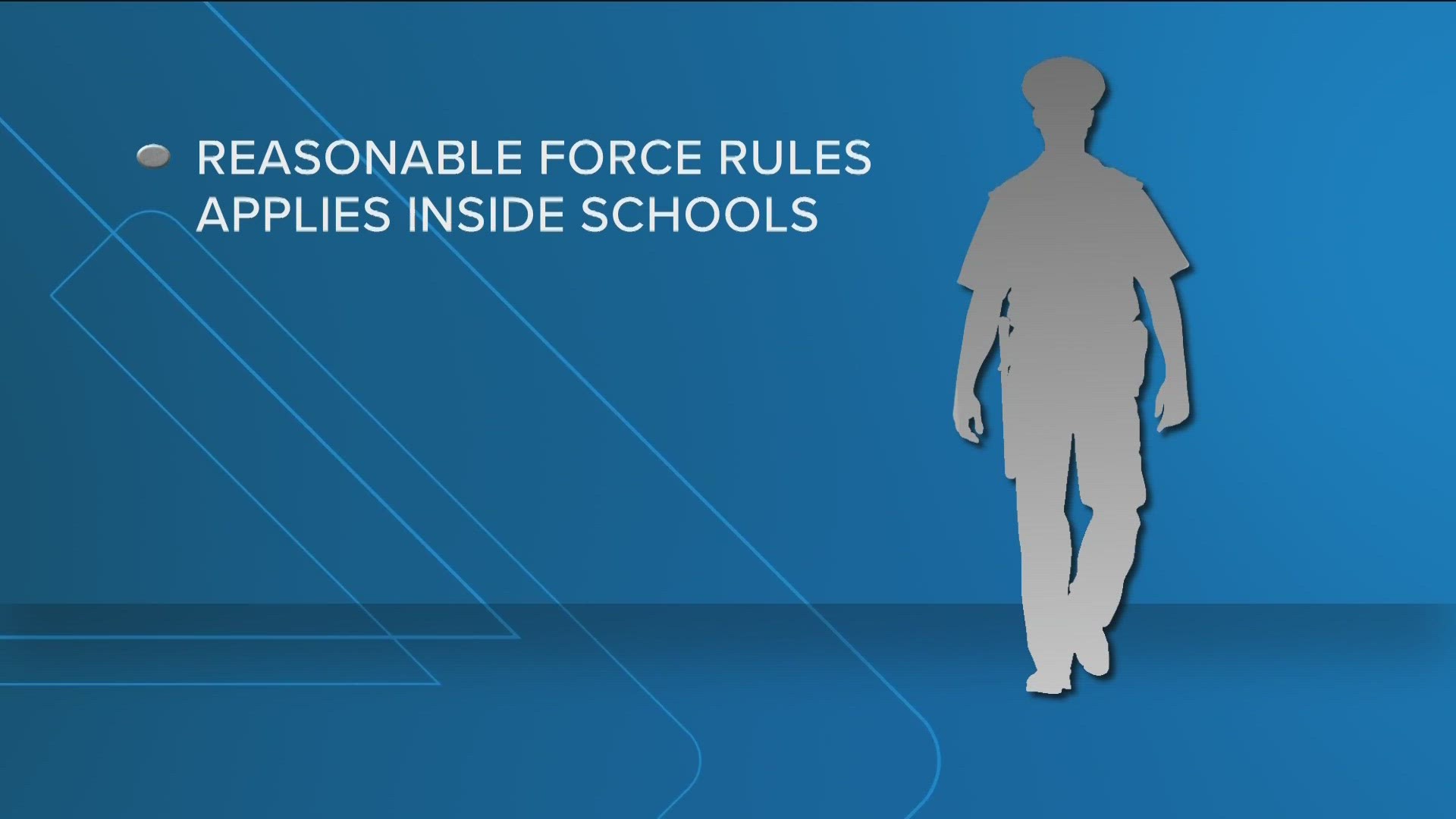ST PAUL, Minn. — The School Resource Officer Use of Force bill passed the Senate Monday, but only after changes were made to the version that passed the House. The House rejected the new language, which will require a conference committee to sort out the differences.
Democrats say the legislation takes a comprehensive approach to school resource officers (SROs), by creating standards and a set of expectations within school buildings. At the same time, the legislation is designed to give law enforcement agencies the legal clarity they're seeking to place their officers inside schools.
"It is a thoughtful bill. It has input from any number of stakeholders, agencies, the other body and this body," said Sen. Bonnie Westlin, the Plymouth Democrat who was the lead author of the Senate version of the SRO bill.
"I’m proud of the work we did. I’m proud of the bill we produced. And I believe to my core that this bill will in fact be better for our kids. We will now have uniformity. We will now have consistency."
She stressed that the decision on whether to have an SRO inside a school is one that is best left to local communities.
Senate Republicans spent much of the day trying to derail the bill and substitute their language for the House's, but in the end, they voted for it.
"I think it is undisputed that our school resource officers are extremely valuable members of the family of our schools throughout the state of Minnesota," said Sen. Zach Duckworth, a Lakeville Republican.
"For those that maybe had doubts about their value, I think it’s now universally understood that school resource officers are a great thing, and they add to enhanced safety in our schools, and they protect our kids and they protect our teachers."
The legislation, for the first time, defines what a school resource officer is and makes it clear that officers working as SROs are allowed to apply the same reasonable force standards inside a school building as they would outside of one.
Changes made to last year's Education Policy and Finance bill caused some confusion around the question, prompting dozens of law enforcement agencies to pull their SROs out of schools. The agencies worried officers would be held liable for lawsuits or criminal prosecution if they used the same tactics they'd used in the past, and they may hesitate to act quickly because of that uncertainty.
At least 40 of those police and sheriff's departments have yet to place their SROs back in buildings, despite a legal opinion from Attorney General Keith Ellison that reasonable force standards remained the same.
The bill also makes clear that SROs don't play a role in student discipline. It sets minimum training standards, and a statewide model policy for SROs. The bill mandates that the Peace Officers Standards and Training Board, known as the POST Board, will formulate the final rules after getting input from stakeholders in law enforcement and public education.
Democrats who opposed the bill were unhappy that it carves out an exception for officers, allowing them to use face-down, prone restraints when deemed necessary. By state law, teachers and other school staff can't use those restraints but can use other types of holds to save lives or prevent injuries.
The legislation has often been dubbed the "SRO repair bill" because it's designed to provide assurances to law enforcement that raised strong objections to new rules enacted in the 2023 Session. Senate Republicans often reminded the Democratic majority of that during Monday's debate.
"What originally passed, driven by the governor, was a rushed bill that made it difficult for school resource officers to do their jobs and put our students’ safety at risk," Sen. Eric Pratt, a Prior Lake Republican, told colleagues.
Pratt led an unsuccessful effort to dump all of the House bill's language and simply repeal the original SRO provision in the 2023 Education bill. His fellow Republican, Sen. Rich Draheim of Madison Lake, was successful in an amendment that would allow teachers and other school staff to place hold on a child who is destroying school property.
"We have heard from teachers that have to leave the classrooms with all the kids but one because one kid is in the classroom destroying the room. And the staff is afraid to do anything," Sen. Draheim said. "They are told to go teach their class outside or in the hallway. That is not effective use of state resources."
WATCH MORE ON KARE 11+
Download the free KARE 11+ app for Roku, Fire TV, Apple TV and other smart TV platforms to watch more from KARE 11 anytime! The KARE 11+ app includes live streams of all of KARE 11's newscasts. You'll also find on-demand replays of newscasts; the latest from KARE 11 Investigates, Breaking the News and the Land of 10,000 Stories; exclusive programs like Verify and HeartThreads; and Minnesota sports talk from our partners at Locked On Minnesota.
- Add KARE 11+ on Roku here or by searching for KARE 11 in the Roku Channel Store.
- Add KARE 11+ on Fire TV here or by searching for KARE 11 in the Amazon App Store.
- Learn more about the KARE 11+ app for Apple TV in the Apple App Store.
- Learn more about KARE 11+ here.
Watch more local news:
Watch the latest local news from the Twin Cities and across Minnesota in our YouTube playlist:

